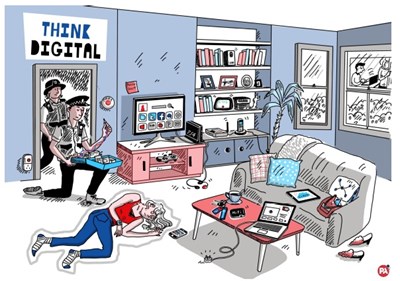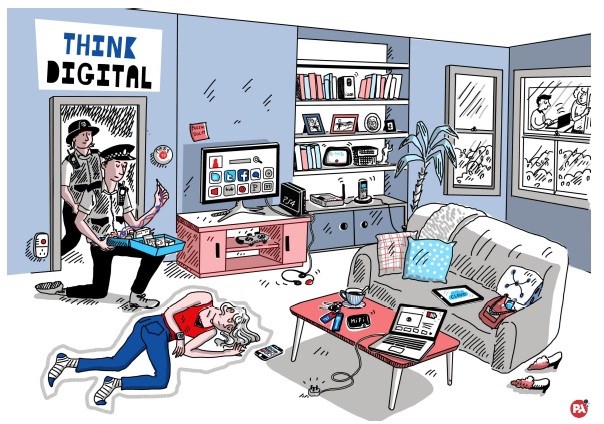11 Jun 2015
Chief Constable Stephen Kavanagh: We have to think digital
In the last twenty years, crime has undergone a change more significant and fundamental than we’ve ever experienced before. We’ve always adapted to changing trends in crime but with over 80 per cent of adults in the UK now regularly using the internet it is not just the types of crime that have changed; it’s the entire world in which we have to fight them.
Crimes on and involving the internet can be just as damaging and life-altering to victims as they would be in the physical world and they are happening and being reported at an ever increasing rate. As criminals find new and innovative ways to use technology and the internet to commit fraud, exploit children, harass people and buy and sell illegal goods, law enforcement must be just as innovative and technically capable in our efforts to combat it.
In April, chief constables agreed a new approach to improve the way we police in the digital age, using the Digital Intelligence and Investigation Framework. The Capabilities Management Group (CMG) was formed, bringing together the National Police Chiefs’ Council, the Home Office, the College of Policing and the National Crime Agency.
The CMG is a multi-agency effort to bring digital intelligence and investigation into the mainstream of what the police service does. It not only looks at the best way to address the threat of cybercrime, but also how policing can embrace new technology and the digital world to improve our service to the public, communicate better, gather evidence and prevent and detect crime.
In the modern world, many crimes will require some form of digital investigation regardless of whether the crime itself has taken place online. An officer may need to access a conversation log on social media to find evidence that a violent assault was premeditated or review footage of a crime that has been uploaded to the internet from a camera phone by a member of the public. It is no longer enough to just have a few specialist officers capable of conducting these investigations. It has to become our bread and butter with the skills and technology widespread and readily available across the service. There was a time when forensics were an alien concept to all but a few trained officers but now every officer has the knowledge and ability to capture forensic evidence. Soon digital investigation will be the same.
If policing is going to have a relevant and effective presence in the digital world, the key to our success will be our ability to embrace and apply new technology quickly. By bringing all the relevant agencies together regularly, the CMG can ensure that decision makers are working face to face to identify and approve new technology so we can get it into the hands of police officers as quickly as possible. It also allows us to collectively consider any ethical concerns and ensure that decisions stand up to public scrutiny.
Over the coming months the CMG will be:
- Defining the core capabilities for all police forces to ensure frontline officers and staff are equipped to respond to the digital revolution
- Working with the College of Policing to define digital skills and career paths
- Building a better evidence base about the changing nature of crime and the impact it has on the demand the police service faces
- Building stronger relationships with academia and industry to look at how to law enforcement can get ahead of criminals in the digital world, and stay ahead.
The challenge facing us is a great one but so are the potential opportunities. We will not be overwhelmed. The digital world cannot be ignored and left to become a Wild West. A failure to protect people online would be a failure to provide the service expected of us. I am confident that the formation of the CMG will be a significant step towards ensuring that law enforcement evolves to meet the challenges of the modern world to keep the public safe.
Contact information
Communications office
By phone: 0800 538 5058
By email: press.office@npcc.police.uk


